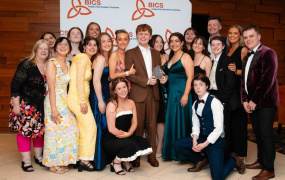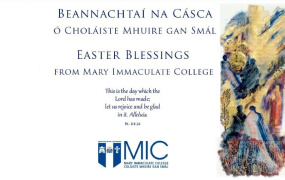Music
About
Music can be taken as part of the MIC Arts Degree as a joint honours combination.
You enjoy music and are interested in understanding how music works. You want to develop your music writing skills, study music history and appreciate a range of different kinds of music.
The music programme at MIC explores the history and language of music and is designed to enable students to develop technical, analytical, critical, performing, aural and creative skills. The Music Department has purpose-built music lecture rooms, practice rooms, a music technology studio and a comprehensive library. Performing ensembles include the MIC Choral Society, the University of Limerick Orchestra and Irish traditional music groups.
You will study harmony and counterpoint, choral arranging, string quartet writing, orchestration and composition alongside a survey of music history across a 1,000 years, musical analysis, Irish traditional music, popular music and music technology. Students also present each year for a short practical examination on their chosen instrument(s) and/or voice. There are various international off-campus study placements in music for third year available. Concert attendance and choral and ensemble participation is expected. There is no formal entrance examination for music but prospective students should have a satisfactory standard of music literacy and the ability to play an instrument and/or sing.
There are many careers in music such as performance, teaching (Professional Master of Education required), broadcasting, journalism, librarianship, publishing, administration etc., but many employers also recruit music graduates because of their transferable skills such as creativity, discipline, teamwork, presentation, critical reflection and cultural awareness.
- MA in Music Education
- MA/PhD Research
- About







